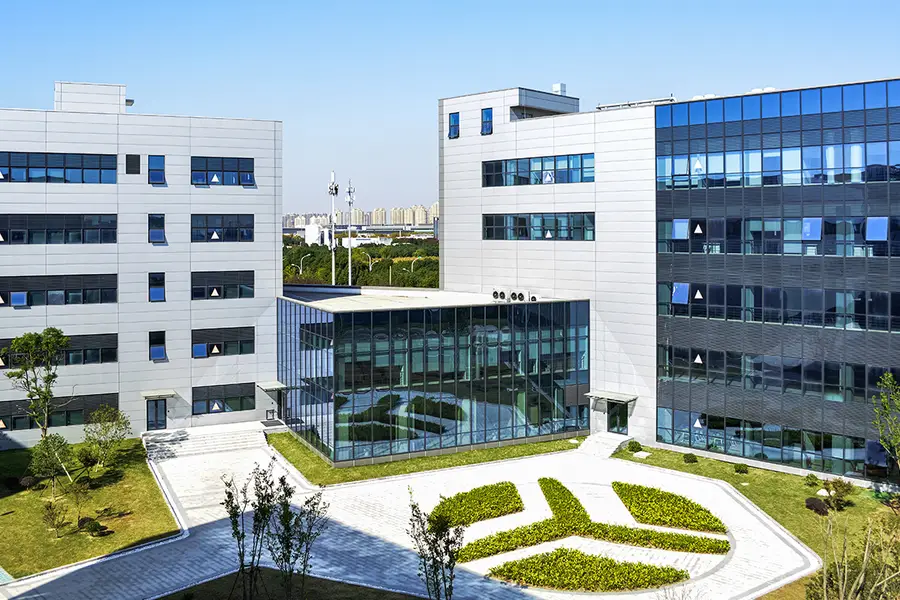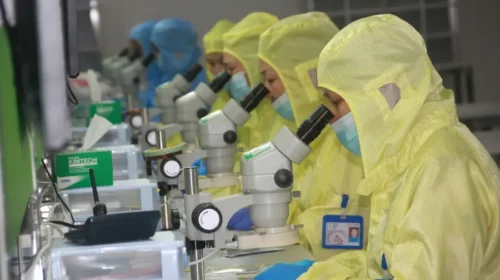Alphamab stake sale could signal harder times ahead

The founder of the cancer drug developer has cashed out part of his holdings after the stock hit a price peak, raising questions about the firm’s earnings outlook
Key Takeaways:
- The company finally posted an annual profit last year, but the achievement came on the back of upfront licensing payments for its experimental drugs
- Rights to Alphamab’s advanced drug candidates in mainland China have now been licensed out, capping the firm’s growth potential from here
By Molly Wen
China’s drug discovery sector has roared back to life this year after a three-year slump, leading a rally in the overall Hong Kong stock market.
One of the standout performers has been cancer therapy specialist Alphamab Oncology (9966.HK), which more than doubled in market value, outstripping a 65% overall jump in the Hang Seng Innovative Drug Index.
But the rebound has also tempted shareholders to cash out their winnings.
Last Friday, Alphamab announced that a family trust controlled by a key shareholder had sold a block of 14.6 million shares on June 5 for approximately HK$117 million. The divestment at HK$8.05 ($1.03) per share reduced the stake controlled by founder and chairman Xu Ting to 31% from 32.5%, although he retains a majority interest.
The sale took advantage of an elevated price after Alphamab stock hit its highest level since November 2023, riding on a wave of positive news for the industry.
The rally was fueled by a $6 billion landmark licensing deal between 3SBio (1530.HK) and Pfizer (PFE.US), as well as a 25% surge by industry leader Hengrui Pharmaceuticals (600276.SH; 1276.HK) after its Hong Kong stock market debut. Alphamab’s share price duly rose nearly 33% between May 19 and May 23. Just over a week later on June 2 the company began the share sale process, which was completed a few days afterwards.
Alphamab specializes in developing biopharmaceuticals for the targeted treatment of tumors. One of its key products is the immune checkpoint drug envafolimab, a PD-L1 oncology product approved in 2021. After being in business for nine years, the company finally achieved its first full-year profit in 2024. While on paper the company looks to be reaping the rewards of its research efforts, the quick cash-out rings an alarm bell for investors.
A closer look at Alphamab’s earnings record sheds some light on the motivation behind the move.
The company’s annual revenues leapt 192% to 640 million yuan ($8.9 million) last year, pushing its bottom line from a net loss of 211 million yuan in 2023 to a profit of 166 million yuan. But core revenue from the only Alphamab drug launched so far on the market, envafolimab, actually fell 18.46% to 159 million yuan from the prior year. The decisive factor for profits was actually proceeds from three licensing agreements, amounting to around 464 million yuan in one-off fees and 1.88 million yuan in staggered payments.
Deals momentum flagging
It was a big year for drug development deals. In January, Alphamab inked a $700 million agreement with Glenmark for envafolimab, a $616 million deal with ArriVent for joint work on antibody-drug conjugates, and a 3.08 billion yuan deal with CSPC Pharmaceutical Group (1093.HK) for the dual-target HER2 antibody-drug conjugate JSKN003.
Those headline amounts include upfront fees and milestone payments, but the deferred sums depend on hitting defined R&D targets and may not ultimately materialize. The parties did not disclose specific figures for upfront payments in the first two collaborations, while the upfront payout for the deal with CSPC Pharmaceutical Group was a mere 400 million yuan.
The track record for previous Alphamab deals highlights the risks. Its U.S. partner Tracon Pharmaceuticals (TCON.US) pulled the plug on joint development of envafolimab after the drug delivered disappointing trial results when used in a combined therapy to treat sarcoma patients. A Phase Three trial for Alphamab’s other core product, KN046 for pancreatic cancer, also failed to achieve the targeted survival endpoint. Previous trials of KN046 to treat a type of lung cancer also yielded unsatisfactory results.
Otherwise, rights within mainland China to Alphamab’s two other advanced pipelines, KN026 and JSKN003, have also been licensed out to CSPC Pharmaceutical Group. Even if those drugs are successfully launched in China, Alphamab will only receive a portion of the proceeds, limiting its earnings growth potential. Moreover, the firm’s HER2 antibody-drug conjugate, JSKN003, faces fierce competition from Zymeworks, Chia Tai Tianqing, and XuanZhu Biopharm, which are working on similar products.
Licensing deals may bump up the bottom line in the short term but only sustained returns from commercially viable drugs can offer a stable income.
Currently, Alphamab trades at a price-to-earnings (P/E) ratio of 44 times, even higher than the 30 times for Henlius Biotech (2696.HK), which has achieved profitability through product sales. Alphamab’s numerous collaborations demonstrate its R&D expertise but leave investors at risk of a setback if profits prove to be fleeting.
To subscribe to Bamboo Works weekly free newsletter, click here




